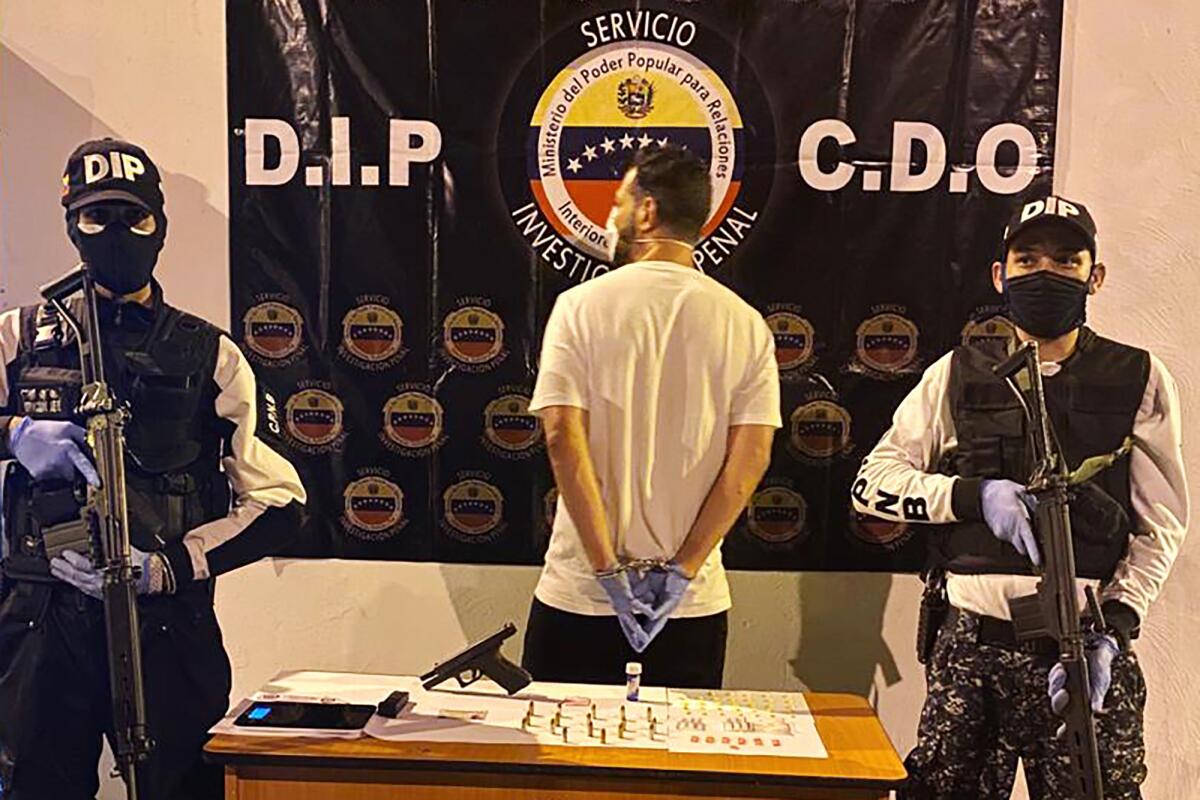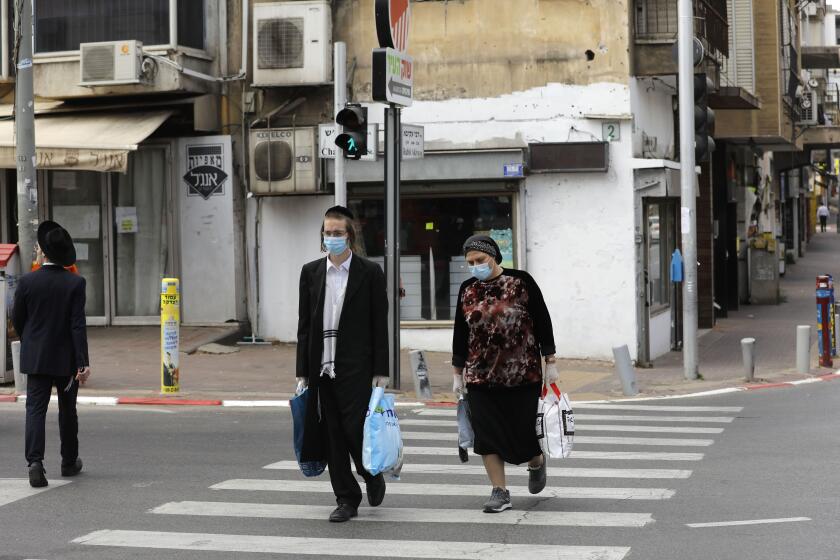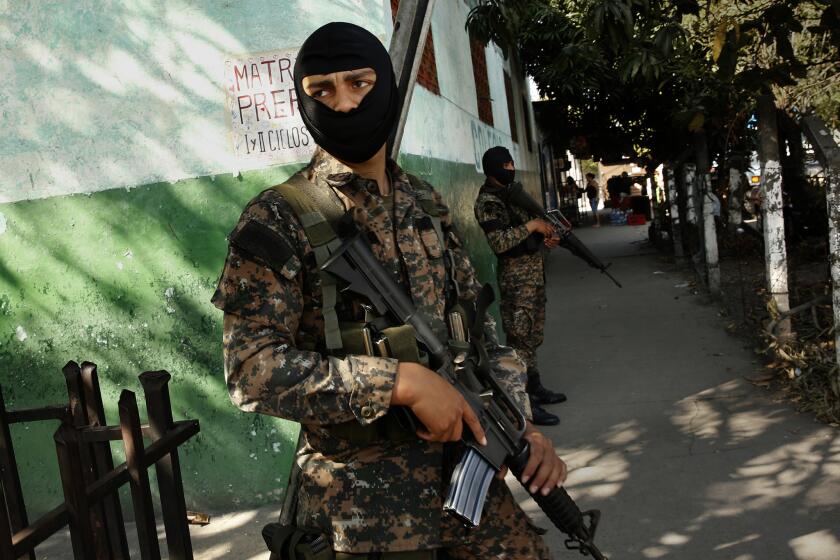Sex. Drugs. Virus. Venezuela elites still party, despite pandemic

MIAMI — They whiled away the week on a sex- and drug-fueled romp: dancing on white-sand beaches and frolicking on a Caribbean island with prostitutes from Europe, some snapping selfies with famous reggaeton artists.
But unbeknownst to several children of Venezuela’s ruling elite, the coronavirus was spreading among them.
For some of Venezuela’s high-flying “Bolichicos” — the privileged offspring of the socialist revolution — the party hasn’t stopped amid a widening pandemic in a country already gripped by crisis.
To date, the virus has claimed only seven confirmed fatalities in Venezuela. But the potential is high for the pandemic to overwhelm an already crippled healthcare system, where hospitals lack water, electricity and supplies.
It’s not clear how many people got sick last month on the Los Roques archipelago. But a raucous party that became a cluster of infections has raised concerns at the highest level of the government and drawn condemnation from Venezuelans locked down at home for weeks.
“There was a party, on an island, and practically everyone at the party is testing positive,” embattled leader Nicolás Maduro said March 20 on state TV.
Three days later, as embarrassing Instagram posts leaked out under the hashtag #CoronavirusParty, he downplayed it.
“Who is going to criticize a party? They didn’t know they were sick,” said Maduro, who was indicted by the U.S. last month on narcotics charges.
Whether it’s crowded Miami beaches during spring break or clandestine raves in Spain and Italy in the pandemic’s early days, parties among the young and rich have been tough to tamp down.
Insular, traditional Jewish community, resistant to state authority, sees spike in COVID-19 cases in Israel.
In Latin America, the world’s most unequal region, jet-setting elites are blamed for importing the virus. In Mexico, for example, nearly 20 people were found to be infected after returning from a ski trip to Vail, Colo. But it’s the poor — lacking medical care and struggling to hold down informal jobs — who bear the brunt.
In Venezuela, engulfed by food and medicine shortages that have forced 5 million to flee, lavish celebrations are even more vexing. Such pockets of wealth are also harder to see amid incessant propaganda extolling the hardworking poor.
The festivities in Los Roques were organized by several government-connected businessmen, according to two people familiar with the gatherings who spoke on the condition of anonymity for fear of retaliation.
While neither of the two people who spoke to the Associated Press were at the party, they have attended other gatherings with the same group and are in contact with several of those who went.
Among the young revelers was Jesús Amoroso, son of Maduro’s top anti-corruption official, who has been sanctioned by the U.S. Treasury Department for allegedly undermining Venezuela’s democracy.
The two people said Venezuelan prostitutes from Madrid and London were flown in just before air travel was closed to Spain, one of the nations hit hardest by the pandemic.
A smaller group crossed paths with two famous Puerto Rican reggaeton artists, Zion and Justin Quiles, who are seen with Amoroso on a sun-struck powerboat in photos and videos on social media.
A spokeswoman said Zion and Quiles were in the islands to shoot a video and didn’t attend any social event. Both tested negative for the virus.
The coronavirus has interrupted the flow of money sent to relatives
In a nation plagued by misery, Los Roques is an oasis for the few who can afford it, including aides and relatives of top officials who travel by private plane to the band of tiny islands. Parties there have become more popular, with Miami, Madrid and New York out of reach after U.S. sanctions cut off access to foreign bank accounts and easy travel. Among those who have visited are Maduro’s sons, according to the two people, although none attended the latest gathering.
Usually, the parties feature psychedelic 2C-B drugs — known as “pink cocaine” for their high price and pink, powdery substance, the two people said.
One of them provided a video of the recent soiree, showing bikini-clad women dancing on March 11 at a beachfront home rented from an exiled Venezuelan banker.
According to a third person familiar with the situation, the next day a larger entourage set out in several boats to a popular spot that locals call “Corrupt Cay.” They didn’t know the virus was spreading.
“Certainly one of the girls had the virus, and nobody knew,” a local resident and party-goer said in an audio message leaked on social media. The person, whose authenticity was verified by one of the two people who used to attend the parties, recounted how he and his girlfriend had to be evacuated with high fevers. He said six people tested positive for the virus.
The party ended with a hangover: Everyone was tested, and some, embarrassed, closed their social media accounts.
Street gangs in El Salvador have turned from extortion and killing to enforcing social distancing restrictions, often with threats and baseball bats.
Others defended their actions.
“Suck it gossipers,” Amoroso said on Instagram with a photo showing him in front of a luxury SUV, middle fingers raised.
Last week, police arrested several people who were in Los Roques, including the suspected madam for the upscale prostitutes, after breaking up a multiday party in an upscale Caracas home. Officers found a handgun, ecstasy pills and eight women belonging to a suspected prostitution ring, according to the police report.
Of the 18 arrested for violating Maduro’s ban on large gatherings, two tested positive for the virus, according to police.
The scandal still rankles people in the Caracas slum of Petare. Miguel Rengifo, who drives a motorcycle-taxi, said he’s appalled at reports of the rich throwing parties while the country is on lockdown.
“We’re struggling to eat, but they’re running free, drinking, chasing girls without a second thought about the rest of us,” the 38-year-old said. “Here, we are fighting just to get by.”
More to Read
Sign up for Essential California
The most important California stories and recommendations in your inbox every morning.
You may occasionally receive promotional content from the Los Angeles Times.













